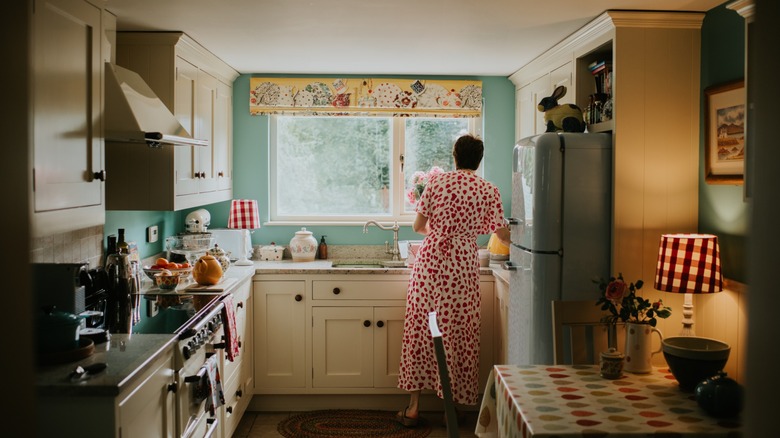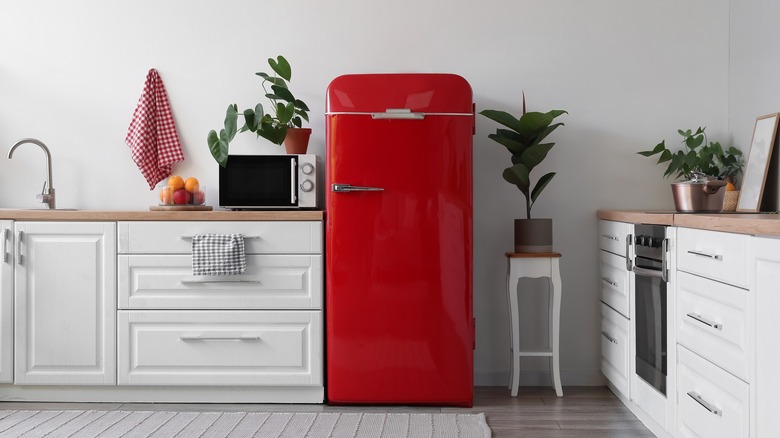The Vintage Appliance That's Not Practical In A Modern Kitchen
When it comes to your kitchen, retro is oftentimes a good choice. Trendy vintage lighting to upgrade your space? We dig it. Resurrecting old-school desserts that people loved in the 1970s for your next themed cocktail party? Obsessed! Too often, we fixate on everything shiny and modern, overlooking the charm of really cool (and still useful) relics from days past. There is at least one component of your kitchen where "old fashioned" should raise a red flag, however, and that's when it comes to your refrigerator. While vintage appliances can look cool and there's a popular myth that they trump latter-day models in terms of durability, there are several good reasons why you don't want a fridge over 20 years old in your kitchen.
Basically, since the early 2000s, improvements in safety and energy efficiency have been so impressive that an old-school fridge is going to fall short in every metric that matters. It will cost you more to run, won't be as good at keeping your food cold, and may even contain harmful materials that have since been banned in manufacturing, like asbestos or Freon. So, while vintage fridges can lend your kitchen a certain aesthetic appeal, it's clear that they come with a lot of downsides. Add in the fact that the Discovery Institute's Wealth and Poverty Review determined that, when adjusted for inflation, refrigerators today are vastly less expensive than they have ever been, and there's just no compelling argument in favor of an old fridge.
Breaking down the cons of vintage fridges
Fridges are one of the busiest appliances in the household, let alone the kitchen. Consider that they have to keep food cold day and night, every day of the year. If you wonder how long raw chicken lasts in the fridge, your average answer is going to assume you have an appliance that seals correctly, has clean coils, and is holding temperature properly. With an old fridge, none of these assumptions can be taken for granted, as parts wear down over years and years of 24/7 use.
Even if your vintage fridge is ice-cold and seals tight as a drum, it's almost certainly going to cost you more money each month compared to a new appliance. The Electric Cooperatives of Arkansas claims that an older fridge may be as much as 66% less efficient than a comparable ENERGY STAR model, costing up to $1 a day to operate. The hard cutoff for when fridges became much more efficient was 2004. If your refrigerator has passed the 20-year mark, you could be needlessly inflating your monthly electric bill.
And that's to say nothing of the scary materials that could be lurking in your older icebox. The Montreal Protocol was passed in 1987, banning ozone-depleting substances like Freon in household appliances. If you have been eyeing a cool Space Age fridge, know that it could be silently releasing harmful gases into the air. Furthermore, unless they have been professionally mitigated, many older fridges could also contain asbestos, which you definitely don't want in your home.

